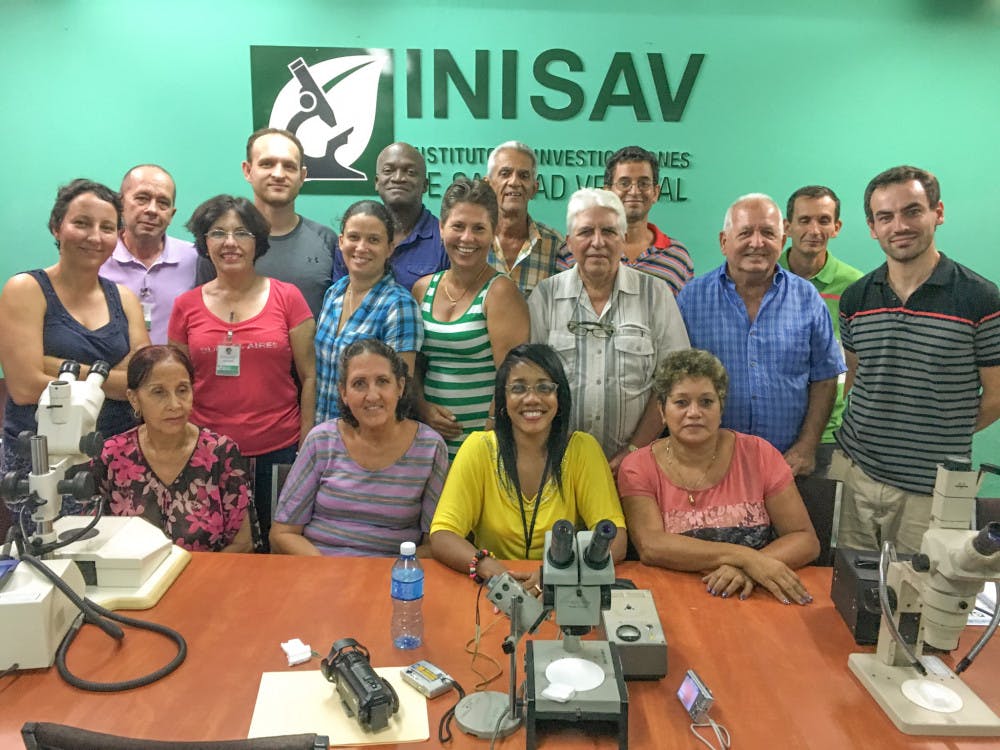A team of UF researchers is trying to find out how to keep a pest from Cuba out of the U.S.
Researchers with the UF Institute of Food and Agricultural Sciences recently came back from their first trip to Cuba to study a wood-boring pest species called the ambrosia beetle, a pest that can kill trees, said Damian Adams, a UF professor of natural resource economics and policy and the study’s principal investigator.
The beetle grows a particular kind of fungus on a tree, and depending on the tree’s reaction to it, that tree can die, he said. The beetle spread significantly from 2002 to 2014 and started to wipe out redbay trees, an important part of the Everglades ecosystem.
“They are called ambrosia beetles because they grow this particular type of fungus that their young actually feed on that has a particular color to it,” Adams said. “It’s almost bluish-purplish, and that’s where the word ambrosia comes from.”
During a one-year study funded by a $228,000 grant from the U.S. Department of Agriculture, the researchers will learn to identify the ambrosia beetle and estimate the potential economic impact of the pest in the U.S., he said. Adams said he is working with several others to conduct the study.
During the group’s first trip to Cuba this month, the UF researchers held a workshop with Cuban scientists to teach them how to identify the species, he said.
“There is probably no better place in the entire U.S. that has the capacity, the manpower and resources and skill set to address this issue,” Adams said of UF.
Paloma Carton De Grammont, Adams’ assistant, is coordinating the study and researching Cuban policies on pest control. As a Spanish speaker, she went to Cuba to help communicate with the Cuban scientists.
“This is going to open the door for more research,” she said.






